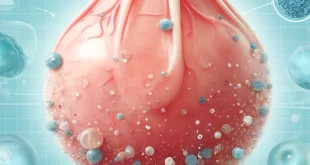Climate change, primarily caused by human activities, is one of the most pressing challenges of our time. Beyond mere temperature changes, its consequences have a significant impact on humanity. This article provides a detailed examination of the multiple impacts of climate change on our species, ranging from rising temperatures and sea-level rise to disruptions in precipitation patterns, loss of biodiversity, extreme weather events, and impacts on human health.
- Rising Temperatures: Climate change results in global temperature increases. Heatwaves become more frequent, intense, and prolonged, posing health risks to humans. The incidence of heat strokes, heat exhaustion, and heat-related illnesses rises, particularly affecting vulnerable populations such as the elderly and children.
- Sea-Level Rise: The melting of glaciers and ice caps, coupled with thermal expansion of the oceans, contributes to sea-level rise. This poses a threat to densely populated coastal regions, exposing millions of people to the risks of flooding and displacement. Coastal infrastructure, ecosystems, and freshwater supplies are also at risk.
- Disruptions in Precipitation Patterns: Climate change disrupts global precipitation patterns. Some regions experience prolonged droughts, affecting agriculture, food security, and water supply. Other regions face intense precipitation, leading to devastating floods and landslides.
- Loss of Biodiversity: Terrestrial and marine ecosystems are experiencing the consequences of climate change, leading to accelerated biodiversity loss. Animal and plant species struggle to adapt to rapid changes in their habitats, resulting in massive extinctions. This loss of biodiversity can have severe repercussions on food security, human health, and ecosystem balance.
- Increase in Extreme Weather Events: Climate change intensifies extreme weather events. Hurricanes, tropical storms, prolonged droughts, and heavy rainfall events become more frequent and severe. These extreme weather phenomena can cause significant material damage, disrupt essential infrastructure, and endanger human lives.
- Impacts on Human Health: Climate change has direct impacts on human health. Rising temperatures facilitate the spread of insect-borne diseases such as malaria, dengue fever, and Lyme disease. Air pollution is also exacerbated by heatwaves and wildfires, leading to increased respiratory problems. Moreover, disruptions in precipitation patterns can compromise food security, resulting in malnutrition and deteriorating overall health.
Conclusion: The consequences of climate change on humanity are vast and profound. Rising temperatures, sea-level rise, disruptions in precipitation patterns, loss of biodiversity, extreme weather events, and impacts on human health pose major challenges. To mitigate these consequences, collective and concerted actions are necessary, including reducing greenhouse gas emissions, adopting adaptation policies, and transitioning to renewable energy sources. The future of humanity depends on our ability to act now to limit climate change and protect our planet.
 Etudes Non Stop Study Non Stop
Etudes Non Stop Study Non Stop



